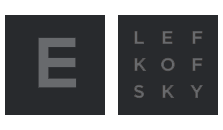New Billionaire Eric Lefkofsky Talks About Groupon And Tech Investing
Chicago entrepreneur and investor Eric Lefkofsky made his debut among the ranks of the world’s richest people this past March with a net worth of $1.6 billion, thanks to his early investment in Groupon. The former employer of Groupon’s founder and chief Andrew Mason, Lefkofsky gave Mason $1 million in angel capital and is now the largest investor in the fast growing firm, which presents online customers with deep discounts on products and services.
Lefkofsky, 41, is still very involved in Groupon and also runs tech investment firm Lightbank with partner Brad Keywell. Both outfits operate out of the same building in Chicago. The author of Accelerated Disruption and an adjunct professor at the University of Chicago Booth School of Business, Lefkofsky spoke with me recently about the company that made him a billionaire, his other investments and why Silicon Valley won’t always be the country’s high tech hub.
Why and when did you decide to start Lightbank?
Brad and I decided back in January 2010 to formalize what we’ve been doing for years by forming Lightbank. We have committed $100 million and funded $60 million. Venture firm NEA (New Enterprise Associates) is also an investor. We’re now approaching 20 investments in the past 15 months; these are companies that we either started or funded.
What are some of the most notable companies besides Groupon?
Three companies, all of which we’ve been involved with one year or less, have already raised second rounds of financing. Sprout Social, (which lets businesses to manage and grow their social presence), Poggled (which sells discounted drink deals and party packages to bars, nightclubs), and Betterfly (which helps customers find the right experts, tutors, trainers etc). Our fund led these second rounds.
How much time do you spend on Groupon these days?
Before the current CFO was hired, I was spending the vast majority of my time on Groupon. It is still part of my daily life. The growth is so extreme that it requires me spending a significant amount of time on the business. Right now, I am helping out on a bunch of legal counsel. (The company has no general counsel). No one expected, no one could have foreseen, that the revenue growth could be so extreme. You can’t staff at senior level with this type of growth.
So what are its legal issues?
The reality of a company like ours, unfortunately in today’s day and age, you can’t not get sued. I once read that Apple gets sued 365 days a year. It’s par for the course. We’ve been sued for expiration dates expiring but how can you be harmed when you can get the money back? There are certain issues where a particular state has an alcohol law. We don’t want to be on wrong side of that, so if we believe our groupons are in violation, we change them and/or seek clarification. We don’t want to be messing with alcohol laws in particular states though chicken and beer for $10, not $20, is very different than offering all you can drink for $1. I don’t think our kind of coupons are necessarily understood by the law. The way we run a company, we try to always do the right thing and it all turns on trying to protect our customers. You can’t worry about the noise that the legal system creates and you just have to keep doing what’s right.
Can Groupon keep growing at this pace?
We try not to talk about what we think of future growth, but so far the copycats have had a very minimal effect. We’re still in a similar position today as we were six months ago, when there was less competition, in terms of market share.
So how many of your portfolio companies are in Chicago?
We recently made small investments in two companies in Silicon Valley, Zaarly and Hipster. Of the companies in which we’ve invested, maybe 13 or 14, so around two-thirds, are in Chicago. Maybe more. All of our local companies are in the same building as Lightbank. Not just Groupon but Poggled, Social Sprout. We don’t have plenty of room but we’re able to accommodate. (After we spoke, Lightbank invested in another California outfit Qwiki.)
Anything else you want to discuss or highlight about Lightbank or Groupon?
We’re fairly overexposed. With regards to Groupon, we’ll have to see how that story is written. For Lightbank, it is really this idea that you can build really interesting companies outside the valley. Tech has evolved to the point where there is no longer this core, centralized expertise in one location, as you arguably had in the Valley in the 1980s and 1990s. We’ve automated the processes of building websites and apps to the extent that you can have a bunch of amazing companies in interesting spots, and eventually in every city in the country. This idea that you have tech companies in the Valley and car companies in Detroit won’t exist. Innovation and technology should be part of the core economy of all cities.
Fast forward, I expect that the top tech hubs will be based on population and GDP. New York could be number one for tech. It will all be based on where you have huge populations and thriving workforces.
What is the key to your success?
There is no one key. We work very hard and we’ve been fortunate to be focused on building Internet businesses at a time of explosive growth.
Did you ever in a million dreams expect that you’d be a billionaire at such a young age?
I don’t spend much time thinking about it. I spend a lot of time thinking about how to help the various businesses we have started or invested in.
Did you always plan to be an entrepreneur? What moved you into that role?
I always had an affinity toward business but it wasn’t until my freshman year of college that I actually acted on it. I started selling carpets to incoming freshman and realized that I had a knack for business.
The one trait that you think makes you a superior investor?
I don’t think of myself as a great investor. I’m good at helping entrepreneurs build great technology businesses. There is a difference and I tend to stay focused on the latter.
Source: Forbes

